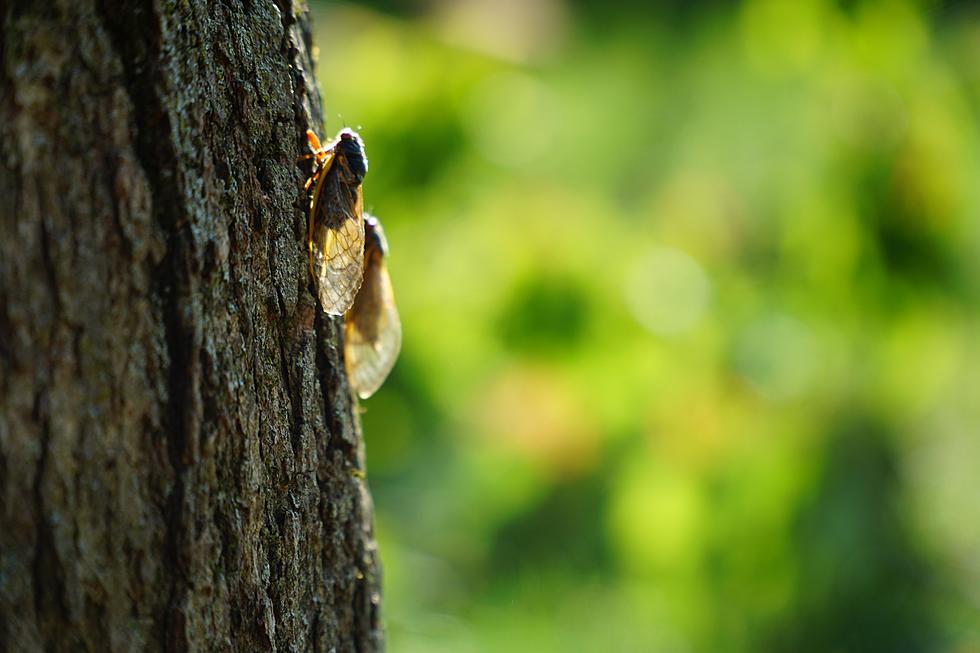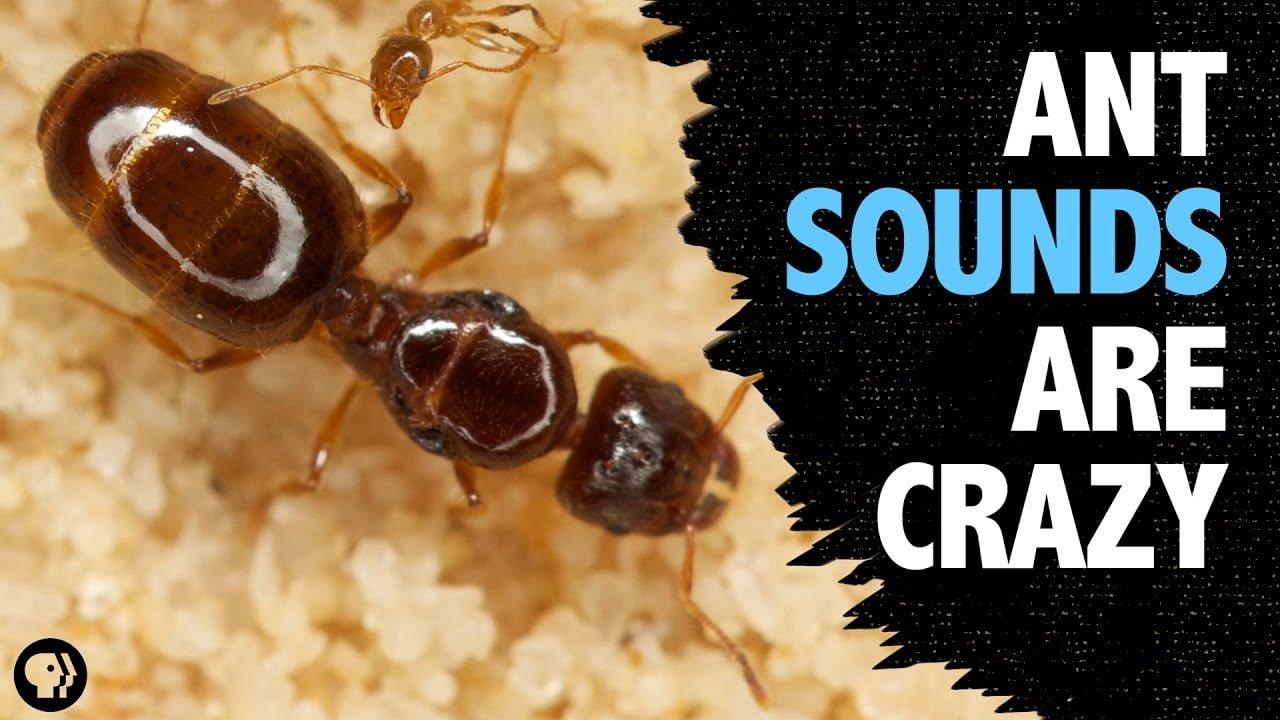Carpenter ants make loud noises when they are moving around and building nests. If you hear a soft rustling sound in your walls, you could have a problem with carpenter ants.
These ants are most active at night, emerging after dusk and returning to their colony prior to dawn. They make noise that sounds like crinkling cellophane as they move about in their colony. The noise can be heard with the help of a stethoscope, which can assist in finding colonies within a wall.
Carpenter ants burrow into woodwork to create their nests, and they make noise when scraping out wood particles.

Credit: 97zokonline.com
Common Ants That Make Loud Noises
The world of ants is filled with interesting behaviors and unique characteristics, and one of the most surprising aspects is their ability to produce loud noises. Many people are unaware that certain ants are capable of creating audible sounds. In this post, we will explore the common ants that make loud noises, including carpenter ants and stridulating ants.
Carpenter Ants
Carpenter ants make audible sounds when they are moving around and building nests. If you hear a soft rustling sound in your walls, you could have a problem with carpenter ants. These ants are most active at night, emerging after dusk and returning to their colony prior to dawn. Some foraging occurs during the day. They produce noise that sounds like crinkling cellophane as they move about in their colony. A stethoscope may be helpful in finding colonies within a wall.
Stridulating Ants
Many ants chirp to each other by rubbing two hard parts of their abdomens together. Different species can use these scraping sounds for things like getting organized, communicating with mates, and calling for help. Stridulating ants are capable of creating these curious noises, often using them as a form of communication within their colonies and for various behavioral purposes.
Identifying Noises Made By Ants
Ants are known for their strength, organization, and ability to work together. But did you know that ants can also make noises? Yes, these small creatures are capable of producing a range of sounds, from scratching to chirping, which can sometimes be heard in our homes or gardens. If you’re curious about the noises that ants make and want to identify them, keep reading!
Scratching Sounds In Walls
One common noise that ants can make is a scratching sound in the walls. If you’ve ever heard a faint rustling or scratching noise coming from inside your walls, it could be a sign of carpenter ants. These ants burrow into the woodwork to create their nests, and as they scrape out wood particles, they can produce a distinct scratching sound. If you suspect you have a carpenter ant infestation, it’s important to address the issue quickly to prevent damage to your home.
Chirping Sounds Of Ants
While it may be surprising, many ants are capable of chirping sounds. They produce these sounds by rubbing two hard parts of their abdomens together. Different ant species use chirping for various purposes, such as communication, organization, finding mates, and even calling for help. However, it’s important to note that not all ants chirp, and the intensity and frequency of the chirping can vary among different species.
To get a better understanding of what an ant sounds like, you can check out educational resources like PBS’ NOVA – Official Website or watch videos on platforms like YouTube. These sources provide recordings of ant noises, helping you identify the specific sounds ants make.
By being aware of the noises ants make and learning to identify them, you can better understand their behavior and take necessary actions if an infestation occurs. Whether it’s the scratching sound of carpenter ants in your walls or the chirping sounds of ants in your garden, recognizing these noises is essential for effective pest management.
Behavior And Activity Patterns Of Noisy Ants
If you’ve ever wondered what ants make a loud noise, you may be surprised to learn that carpenter ants are among the noisemakers of the insect world. These ants produce audible sounds as they move around and build nests. So, if you hear a soft rustling sound coming from your walls, it could be a sign of a carpenter ant problem.
Nighttime Activity Of Carpenter Ants
Carpenter ants are predominantly active during the night, although some foraging may occur during the day. They emerge after dusk and return to their colony prior to dawn, making them particularly noisy during those hours. As they move about in their colony, these ants produce sounds similar to crinkling cellophane. If you suspect a carpenter ant infestation, using a stethoscope can help you locate their colonies within walls.
Communication Through Sounds
Like other ants, carpenter ants also communicate with each other through sound. They produce chirping or scraping sounds by rubbing hard parts of their abdomens together. These sounds serve various purposes, including organizing their activities, communicating with mates, and calling for help. While the sounds may be quite different from what we perceive, they are effective in conveying messages within the ant colony.
If you’re curious to hear what ant sounds are like, you can find recordings on platforms like YouTube. However, it’s essential to note that some ants can also emit loud warning sounds when threatened or distressed. These warning sounds are not typical of carpenter ants but are worth mentioning in the context of ant noise.
In conclusion, carpenter ants are known for their noisy behavior, especially during the night. They create audible sounds as they go about their activities, such as building nests and communicating with each other. Understanding the behavior and activity patterns of these noisy ants can help identify and address any infestation issues effectively.

Credit: www.reddit.com
Interaction With Humans
When it comes to interaction with humans, understanding how ants respond to loud sounds and communicate through stridulation can provide valuable insights into their behavior and impact on our surroundings.
Ants Responding To Loud Sounds
Ants are highly sensitive to vibrations and loud noises, responding to them as a form of communication and defense mechanism. When humans generate loud noises, such as construction activities or music, it can disrupt ant colonies, causing them to react by altering their foraging patterns and nesting behavior. This interaction with humans can affect the overall dynamics of ant populations in urban environments.
How Ants Stridulate To Communicate
Stridulation is a method of communication employed by ants through the rubbing of body parts to produce audible sounds. This form of communication allows ants to convey information about food sources, warn of potential threats, and coordinate activities within their colonies. When encountering loud sounds from human activities, ants may modulate their stridulation patterns in response, indicating a dynamic interaction between ants and their surrounding environment.
Scientific Studies And Experiments
The study of ant noises involves fascinating experiments and scientific research that delve into the acoustic world of ants.
Acoustic World Of Ants
Ants create a symphony of communication through their unique sound production mechanisms.
Mimicry Of Ant Noises By Other Insects
Some insects mimic ant noises to deceive or communicate with ants, showcasing remarkable imitation skills.

Credit: www.reddit.com
Frequently Asked Questions For What Ant Makes A Loud Noise
What Kind Of Ant Makes A Loud Noise?
Carpenter ants make loud noises while moving and building nests, creating a soft rustling sound in walls.
What Ants Make Noise At Night?
Carpenter ants make noise at night, resembling crinkling cellophane, while they are active. They are most active after dusk and return to their colony before dawn. The rustling noise they make is due to their movement and nesting activities. If heard in walls, it may indicate a carpenter ant infestation.
What Do Carpenter Ants Sound Like?
Carpenter ants make audible sounds when they are moving around and building nests. You may hear a soft rustling sound in your walls if you have a problem with carpenter ants. They also make noise that sounds like crinkling cellophane as they move in their colony.
Do Ants Make A Sound?
Yes, some ants can make audible sounds. Carpenter ants, in particular, make noise when they are moving around and building nests. They can produce a soft rustling sound in your walls. Other species of ants also communicate through scraping or chirping sounds for various purposes.
Conclusion
Understanding the types of ants that make loud noises can be crucial for identifying potential infestations. Carpenter ants, in particular, are known to produce audible sounds as they move and build nests within wooden structures. Recognizing these sounds early on can help in addressing any potential pest issues before they escalate.
Ant noises are an interesting aspect of their behavior, and it is important to continue exploring and understanding these unique insect sounds.

I’m MD Tanvir, and I bring years of expertise gained from working closely with pest control companies to the forefront. My journey in the industry has inspired me to launch Bug Battler, a platform aimed at equipping people with the know-how to combat pests autonomously. Through Bug Battler, I aim to empower individuals with practical insights to tackle pest infestations effectively.

